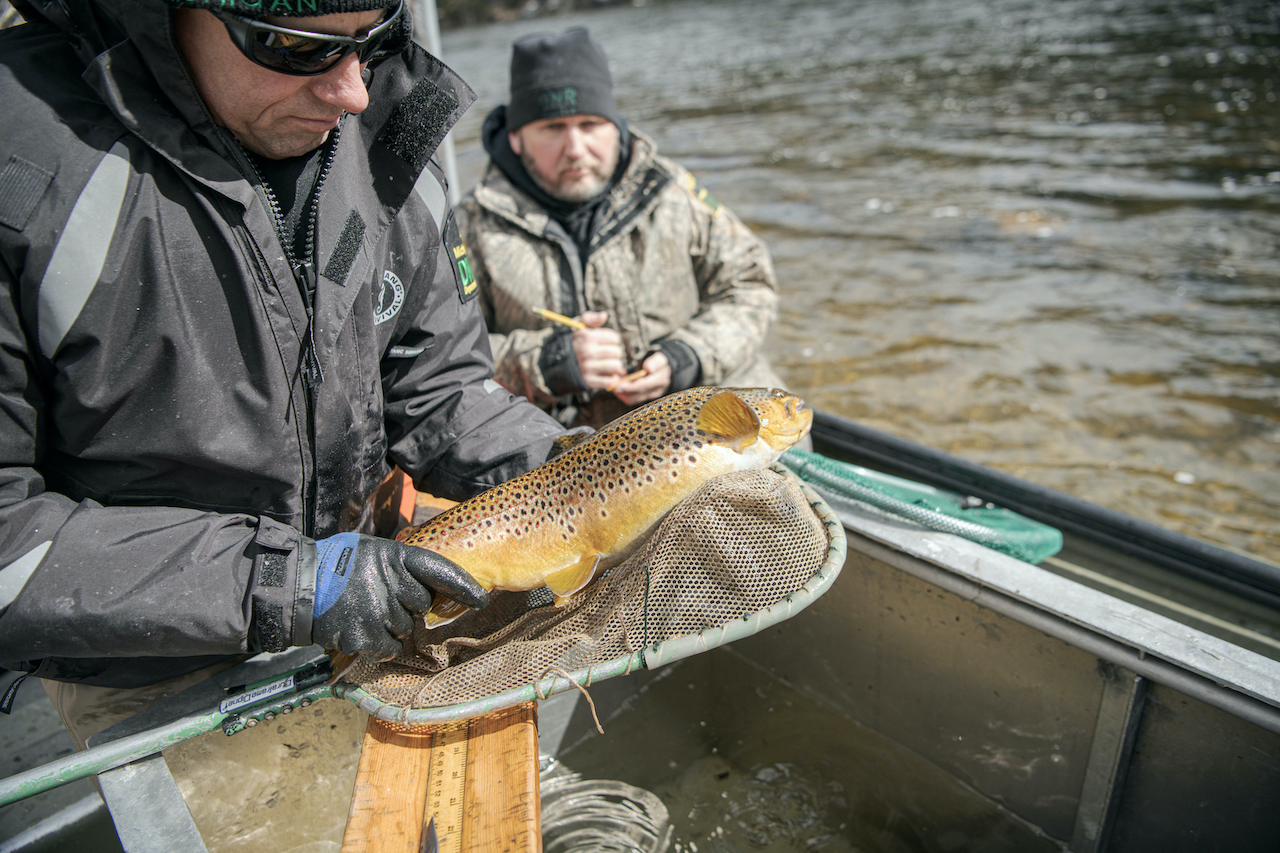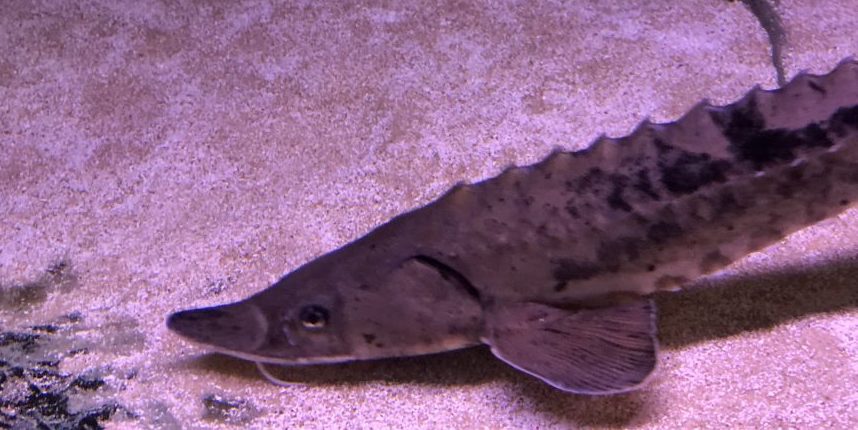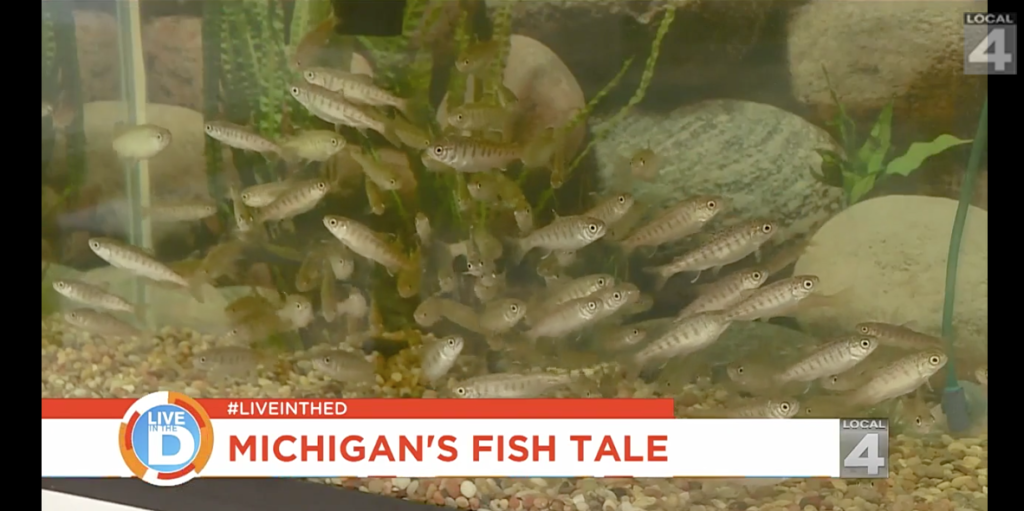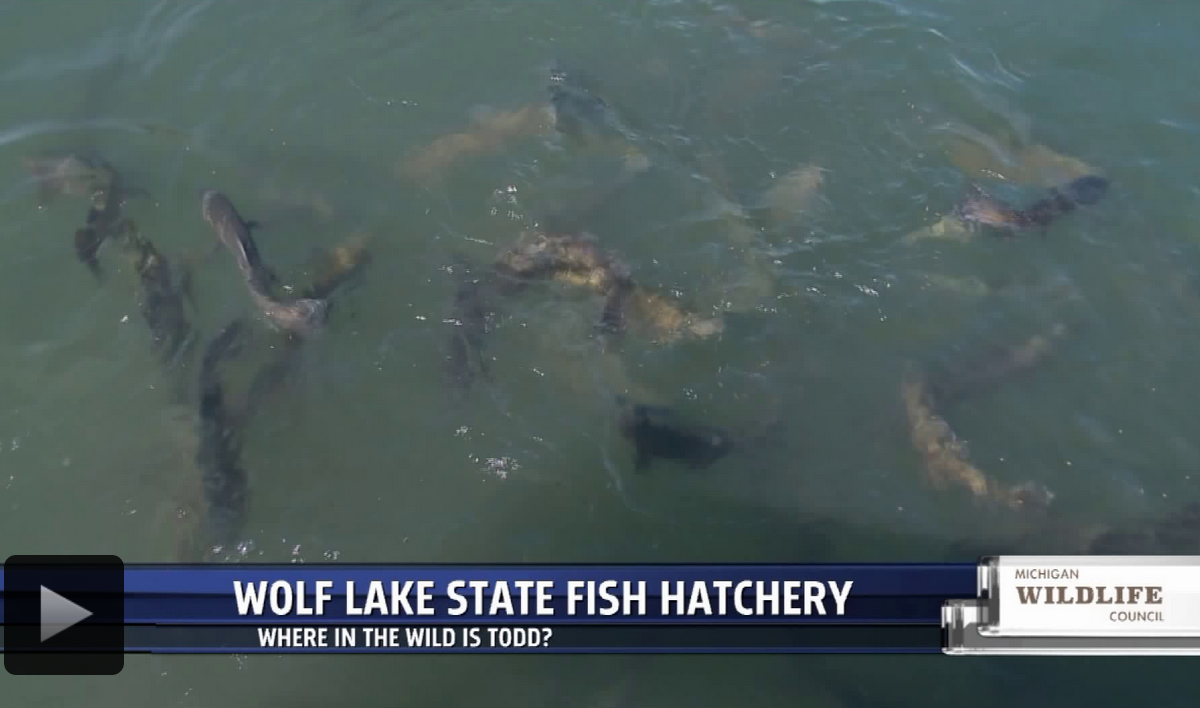By Michigan Wildlife Council
Detroit is known for many things. Shaping the modern auto industry. The birth of Motown music. Diehard fans rooting on their Lions, Pistons, Red Wings and Tigers.
But for Jim Francis, Lake Erie basin coordinator for the Michigan Department of Natural Resources Fisheries Division, the city and surrounding communities are synonymous with fishing.
And it’s not just because of his job managing all the waterways that drain into Lake Erie, including the St. Clair River, Lake St. Clair and the Detroit River. He and his team cover 14 counties and are charged with a wide range of responsibilities like fish stocking programs, fisheries assessments, environmental impacts on man-made construction projects and invasive plant and animal species prevention, control and eradication.
It’s also because he loves to fish.
“I think you’ll find a common thread among a lot of my colleagues in the DNR and it’s that we chose our career path because of a love and appreciation for the resource,” said Francis, who grew up fishing. “It’s a quality-of-life issue for me. When I get out there on the water or the shoreline and cast my line, the stress just melts away.”
The Detroit area is the perfect spot for experienced anglers like Francis to pursue their passion for fishing.
Fishing benefits everyone
Ranked the No. 5 fishing city in the country by FishingBooker — an online service for booking fishing trips — Detroit is home to some of the most diverse and plentiful fisheries in the country, including walleye, bass, perch, crappie, northern pike, channel catfish and muskie.
But Francis says a person doesn’t have to be a skilled angler to appreciate the benefits of fishing. It isn’t only about the thrill of the catch; it’s also about enjoying the outdoors and supporting conservation.
Fishing plays a vital role in Michigan’s conservation efforts, like keeping wildlife populations in balance, protecting Michigan waters from habitat degradation and invasive species and safeguarding the state’s forests.
Last year, licenses purchased by anglers and hunters generated over $66 million for the Michigan Game and Fish Protection Fund. The fund is the DNR’s largest revenue source and is critical to its conservation work. Fishing and hunting equipment sales raised an additional $32 million to support wildlife and natural resource management.
“A lot of time, energy and money go into restoring, managing and protecting Michigan’s important natural resources, and every angler — from experienced to beginner — drives these efforts,” Michigan Wildlife Council Chair Nick Buggia said. “Hunting and fishing license sales, not state tax dollars, fund conservation, and the more people who cast lines in Michigan waters, the better it is for our entire state.”
Along with conservation, hunting and fishing are significant economic drivers for Michigan.
Combined, they generate $11.2 billion for Michigan’s economy every year and support 171,000 jobs, according to a 2019 study released by the Michigan United Conservation Clubs in partnership with Michigan State University.
Fishing opportunities for families and beginners abound in Detroit
While fishing has a tremendous impact on the economy, it doesn’t have to impact a family’s wallet to give it a try.
“Obviously, inflation is on everyone’s mind right now,” Francis said. “Everything just costs more today. Except for fishing licenses. Fishing licenses for Michigan residents have cost $26 since 2014. For $26 anyone can fish 365 days a year anywhere in Michigan. And kids under 16 don’t even need a license. That’s a heck of a bargain.”
Francis estimates that for the basics — a pole, reel, line, hook and bait — a person can fish all day for about $20-$30.
Francis says there are great fishing spots for families and beginners throughout metro Detroit that offer easy access to fish from the shore or a pier. In the city, he recommends trying Milliken State Park, where there’s a cut in the Detroit River that beginners can fish without having to deal with the river’s tricky current that more experienced anglers navigate. On Belle Isle, Francis says Blue Heron Lagoon, Lake Muskoday and Lake Okonoka are also great spots for shore fishing.
Other locations with his seal of approval include Pontiac Lake Recreation Area, Kensington Metro Park, Bishop Park in Wyandotte, Dingell Park in Ecorse and the new fishing pier at the International Wildlife Refuge in Trenton.
The DNR offers an interactive Family Friendly Fishing Waters map that identifies the most accessible sites in all of Michigan’s 83 counties with a high likelihood of catching fish. Metro Detroit is home to 17 Family Friendly Fishing Waters locations, all within a short drive from Macomb, Oakland and Wayne counties.
Additional resources, including information on fishing licenses, rules and regulations and how-to guides and videos, are available at Michigan.gov/fishing.
Francis has some advice for families with children and beginners planning to go fishing this summer.
“The important thing is to keep it simple,” he said. “Walking into a tackle store can be overwhelming. It’s a lot of specialized stuff, which we all get to eventually. But starting out, it can just be about taking a kid with a Snoopy pole to the end of a dock and casting bobbers for bluegills and then working your way up from there.”
The Michigan Wildlife Council is dedicated to increasing public understanding of the important role hunting and fishing play in the conservation and management of the state’s natural resources. More information is available at www.HereForMiOutdoors.org.



